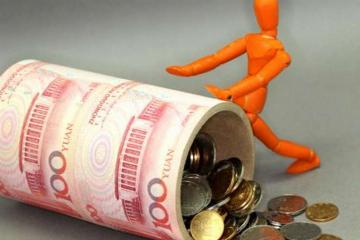De-dollarization Gains Momentum in Oil Trade
Advertisements
The global economic landscape has been under significant scrutiny, particularly with the focus on the United States Federal Reserve's recent interest rate hikes and the ongoing economic dialogues—or disputes, as some might call them—between Russia and TurkeyThese are two pivotal developments that have far-reaching implications for the world financial markets, and as clarity emerges from these issues, the psychological impact on the market is beginning to lessenWhile global oil prices experienced a brief uptick, they still remain precarious, reflecting the market's uncertainty.
An alarming trend has emerged: financial data shows that Saudi Arabia, in its bid to stabilize its economy, has withdrawn a staggering $70 billion from international marketsIn just the past third quarter alone, Gulf countries pulled an additional $19 billion from global investmentsThis figure solely represents the government sovereign fund data of Gulf states, and the actual total—including corporate and individual withdrawals—is likely even more staggering.
Adding to the tension in the global economy, reports indicate that Saudi Arabia is contemplating a decoupling of its currency from the US dollar
Advertisements
Should this occur, it could trigger a significant plunge in the currencies of many emerging market nations, leading to devastating repercussions across global financial markets.
In the face of these turbulent times, China has unveiled a new currency mechanism: the CFETS (China Foreign Exchange Trade System) Renminbi Exchange Rate Index, which encompasses a basket of 13 currenciesThe index assigns a weight of 26.4% to the US dollar, 21.4% to the euro, and 14.7% to the Japanese yen, based on the daily average exchange rates for the renminbiThis initiative coincides perfectly with the ongoing discussions of interest rate hikes, suggesting a strategic alignment in China’s economic policy.
The primary goal of this index is to cultivate an independent evaluation system for the renminbi, shifting focus away from its bilateral exchange rate with the US dollarInstead, it aims to measure the renminbi's comparative value against the currencies of China's key trading partners
Advertisements
Observations from last week indicated a pattern of gradual devaluation for the renminbi, where its daily closing prices remained consistently about 100 points above the central price set each day.
As the Federal Reserve signals its intent to raise interest rates—an act many see as a precursor to a major global financial confrontation—the launch of the renminbi exchange rate index emerges as a timely interventionThis development may serve to alleviate the pervasive sense of dollar worship that lingers domestically within ChinaThis mindset poses a significant obstacle to the internationalization of the renminbi and represents one of the most critical threats to the current state of the Chinese economy.
For years, China has been overly focused on the dollarAny depreciation of the renminbi against the dollar was interpreted by markets as a sign of weakness, creating anxiety among investors
Advertisements
However, during the recent "Sanya Finance Forum," the director of the Financial Research Institute of the People’s Bank of China, Yao Yudong, stated that fears surrounding potential renminbi depreciation due to the Fed's actions might be overstatedHe reassured attendees that there’s no need to panic over capital outflows from China.
Former governor of the People’s Bank of China, Zhou Xiaochuan, previously stated that by the end of the 13th Five-Year Plan, the renminbi would evolve into an international currencyThis notion likely began taking root well before the renminbi was included in the Special Drawing Rights (SDR) basketHowever, after this significant inclusion, the renminbi began its journey of depreciation, a natural progression given the circumstances.
For the renminbi to achieve true marketization, it must extend beyond merely mirroring the dollar
- Transaction Banks Tap Platform Strategy for Growth
- Stocks on Brink? Fed Rate Hike Debate Heats Up
- Strong Demand for Global Electric Vehicle Market
- Treasury Yields Hit New Low Amid Wealth Shift
- Crossroads of Wealth: Where Do You Stand?
This shift indicates a fundamental change in currency policy that facilitates the renminbi's freedom to fluctuate according to economic conditionsThis newfound flexibility is crucial for China, allowing the currency to adapt to evolving circumstances rather than being shackled to the dollar, ultimately minimizing the adverse effects of dollar fluctuations on the Chinese economy.
As a developing nation, China continues to rely heavily on exports, which play a significant role in driving its manufacturing sectorThe idea of tethering the renminbi to the dollar in such a context seems increasingly untenable, a sentiment likely shared by decision-makers who seek to navigate away from this dependencyIn light of a global economic downturn, promoting a strong renminbi appreciation also appears unrealistic.
Recent data released by the central bank revealed that the total renminbi foreign exchange reserves dropped by 315.8 billion yuan in November, reaching 25.56 trillion yuan—marking the second-largest decline in history, right after the post "August 11" currency reform

This has sparked renewed media speculation and concernYet, as a perspective on currency internationalization, it's essential to understand that a truly independent currency does not require US dollar backingHolding substantial dollar reserves while competing against the dollar is merely a temporary measure, and establishing a long-term reliance on it could prove detrimental.
Drawing from history, Japan's past aspirations to dominate the global market using the dollar ultimately led to its prolonged economic stagnationThe country's attempts to compete using dollar-denominated assets were ironically counterproductive; the more successful Japan became, the more it reinforced the dollar's hegemony instead of its ownWhen the time came to settle up, Japan found itself back at square one.
Japan's two-decade-long economic malaise traces back to its inability to escape the dollar's grip, foreshadowing a bleak future